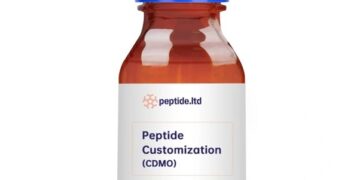Mental health and substance abuse are two intertwined issues that profoundly affect individuals, families, and society as a whole. Both mental health disorders and substance use disorders are chronic conditions that, if left untreated, can lead to serious harm, disability, and even death. This article explores the link between mental health and substance abuse and discusses the impact this link has on individuals and communities.
Mental health disorder
Mental health disorders are a wide range of illnesses that affect an individual’s thoughts, feelings, and behavior. Common mental health disorders include depression, anxiety, bipolar disorder, schizophrenia, and personality disorders. Mental health disorders can manifest in many ways, ranging from mild to severe.
Substance use disorder
Substance use disorders are a collection of conditions that occur when individuals use substances such as alcohol or drugs in ways that are harmful to themselves or others. Substance use disorders cause physical, psychological, and social harm and can be chronic and difficult to treat. Common substances of abuse include alcohol, opioids, cocaine, methamphetamine, and marijuana.
The Link Between Mental Health and Substance Abuse
The link between mental health and substance abuse is well established. Research shows that people with a mental illness are more likely to develop a substance use disorder, and people with a substance use disorder are more likely to develop a mental illness. There are several reasons for this connection:
- Self-treatment: People with mental illness may self-medicate their symptoms with substances. For example, a depressed person may drink alcohol to ease feelings of sadness or anxiety. However, substance use can exacerbate mental health symptoms and lead to addiction.
- Genetics: There is evidence that genetic factors play a role in both mental health disorders and substance use disorders. Studies have shown that certain genes are associated with an increased risk of both conditions.
- Environmental factors: Environmental factors, such as childhood trauma or chronic stress, can increase the risk of developing mental health disorders and substance use disorders.
The implications of the association between mental health and substance abuse
The link between mental health and substance abuse has important implications for individuals, families, and communities. Some effects include:
- Increased risk of suicide: People with mental health and substance use disorders have a higher risk of suicide. Substance use can worsen mental health symptoms and increase the risk of suicidal behavior.
- Unhealthy Consequences: Substance abuse can negatively impact your physical health, leading to a variety of health problems such as liver disease, heart disease, and cancer. People with mental illness are also more likely to have physical health problems that can be exacerbated by substance abuse.
- Social Isolation: Mental health and substance use disorders can lead to social isolation as individuals may withdraw from friends and family. This can exacerbate mental health symptoms and increase the risk of substance abuse.
- Financial Stress: Substance abuse can be costly and cause financial stress for individuals and families. This can lead to more stress and exacerbate mental health symptoms.
Conclusion
In conclusion, the link between mental health and substance abuse is important and complex. Addressing both conditions requires a holistic approach to address the underlying problem and provide effective treatment options. It is important that individuals, families and communities recognize the link between mental health and substance abuse and seek help when needed.































